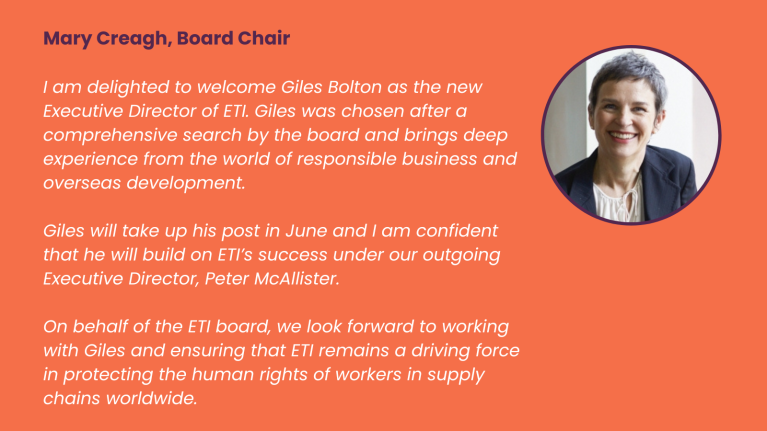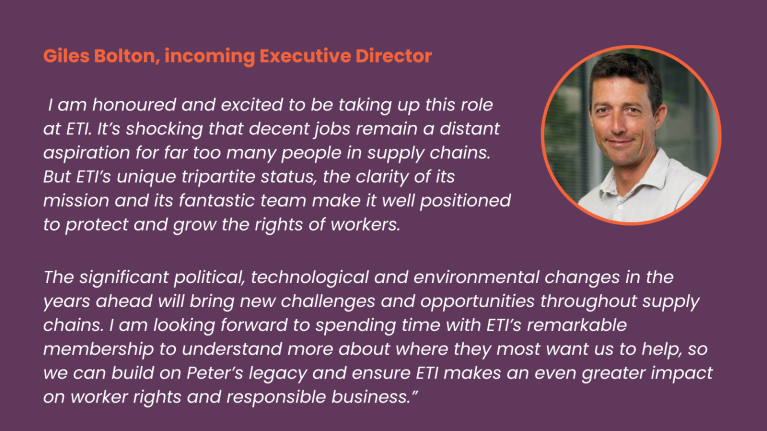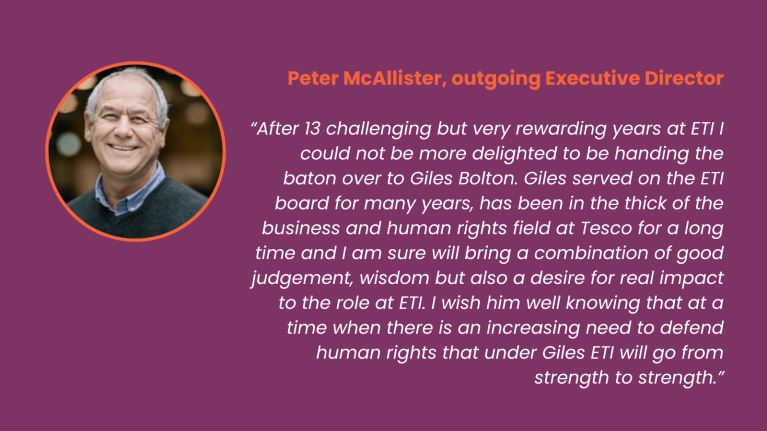
ETI is pleased to announce the appointment of our new Executive Director, Giles Bolton.
After an extensive interview and selection process by a panel of tripartite board members, led by Board Chair Mary Creagh CBE, Giles was considered the best candidate to lead ETI into its next chapter.

Giles joins us from Tesco and will be taking over from current Executive Director, Peter McAllister, later this year. Giles was Group Sustainability Director at Tesco for 15 years where he built and led a team of 80 human rights, environment, and packaging experts across 10 key sourcing countries, responsible for ensuring good working conditions and sustainable practices across Tesco’s supply chain.
A founder member of ETI, Tesco was ranked top of Oxfam's 'Behind the Barcodes' survey of supermarkets on supply chain human rights, for each of the four years the survey was conducted. Tesco has also been widely viewed as a leader in seeking to understand and address modern slavery risks and set a target of ensuring that its suppliers have at least 25% of their management and supervisory roles filled by women, by 2025.
Giles has a history of impactful work with stakeholders across ETI’s tripartite membership. At Tesco, he shepherded the signing of a groundbreaking agreement with the International Union of Food (IUF) in 2022. The agreement outlines how Tesco and IUF can work together to support workers’ rights globally, with a specific focus on how women in global food supply chains can benefit from effective grievance mechanisms, freedom of association and trade union representation.

Prior to Tesco, Giles was an aid worker and diplomat, including running the UK's aid programme in Rwanda, coordinating reconstruction efforts during the Iraq war, and leading on pro-poor trade policy. Giles was a member of the ETI Board between 2015 and 2023, and previously worked as co-chair of the Consumer Goods Forum working group on forced labour.
He is currently on the Board of the aid transparency NGO Publish What You Fund and has recently taken up the role as Chair of the Board of Trustees of the Marine Stewardship Council. He is also the author of the activist book ‘Aid and Other Dirty Business’.

